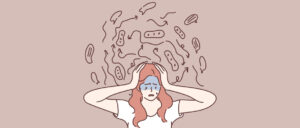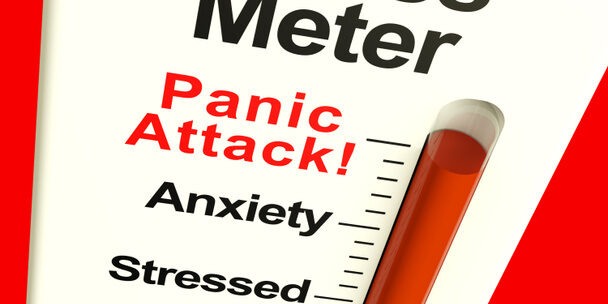A panic attack is a sudden and intense episode of fear or anxiety that often peaks within a few minutes. These attacks can be extremely distressing and may include a combination of physical and psychological symptoms. This intense fear or anxiety can make people feel as if their life is at threat or they are having heart attack.
It is important to know that the signs and symptoms of panic attack may appear dreadful or similar to many other things.

However, some common signs of a panic attack may include:
- Sudden and intense fear or anxiety: Panic attacks often involve a sudden onset of overwhelming fear or anxiety.
- Physical symptoms: These may include a racing heart, shortness of breath, chest pain, trembling or shaking, sweating, dizziness, and nausea or abdominal pain.
- Feeling out of control: Individuals experiencing a panic attack may feel a loss of control or a sense of impending doom.
- Cognitive symptoms: Panic attacks can also affect your thinking, leading to a fear of going crazy or losing touch with reality.
- Avoidance behavior: People who experience panic attacks may start avoiding situations or places they associate with the attacks.
If you’re unsure about what you’re experiencing, it’s crucial to consult with a healthcare professional who can provide an accurate diagnosis and recommend appropriate treatment options. If you’re in distress or feel that your symptoms are severe, seek emergency medical assistance immediately.
Triggers:
Some people believe that panic attack doesn’t have any trigger associated with it. However psychological distress generally have triggers which may or may not be known to the person. Some of the triggers are as follows:
- Stress: High levels of stress can trigger panic attacks.
- Trauma or Loss: Past traumatic experiences or recent significant losses can contribute to panic attacks.
- Phobias: Specific phobias or fear of certain situations can be triggers.
- Medical Conditions: Some medical conditions, such as thyroid disorders or heart conditions, may contribute to panic attacks.
- Substance Abuse: Alcohol or drug use can increase the risk of panic attacks.
Causes:
- Genetics: There may be a genetic predisposition to panic attacks.
- Brain Chemistry: Imbalances in neurotransmitters, such as serotonin and norepinephrine, may play a role.
- Environmental Factors: Childhood experiences, such as a history of abuse or neglect, may contribute.
- Personality Factors: Certain personality traits, such as being highly sensitive or having a tendency to worry, might increase vulnerability.
Coping Strategies:
- Deep Breathing: Practice slow, deep breathing to help manage physical symptoms.
- Grounding Techniques: Focus on your senses, such as feeling the ground beneath you or listening to calming sounds.
- Mindfulness and Relaxation: Techniques like meditation and progressive muscle relaxation can be helpful.
- Counseling or Therapy: Cognitive-behavioral therapy (CBT) can assist in identifying and managing triggers.
- Medication: In some cases, medication may be prescribed to manage symptoms.
Before concluding or labelling oneself with these psychological terminologies like Panic Attack is it essential to consult a health professional for the proper diagnosis.




